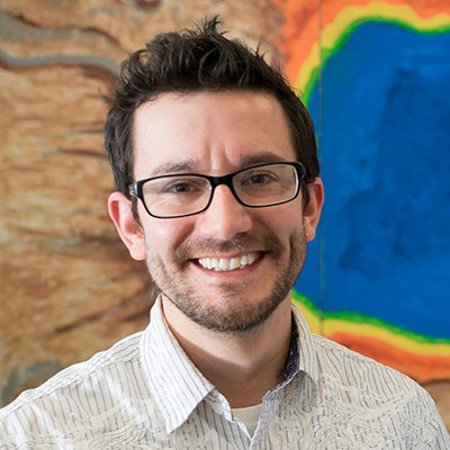Daniel C Ducat
Professor, Department of Biochemistry & Molecular Biology
Professor, MSU-DOE Plant Research Laboratory
Regular Faculty, Molecular Plant Sciences Program
Associate Professor, Genetics & Genome Sciences Program
Associate Professor, Cell & Molecular Biology Program
Associate Professor, BioMolecular Science Gateway
Location: 106 Plant Biology Lab
Phone: 517-432-5118
Email: ducatdan@msu.edu
Bio
# Titles * Associate Professor #Research: Cyanobacterial Biology and Biotechnology Cyanobacteria are some of the simplest microbes capable of harnessing energy from sunlight and are among the most evolutionarily ancient organisms. Indeed, cyanobacterial biochemistry, acting over millions of years, radically altered the atmosphere and enabled life as we know it on Earth today. It seems therefore fitting that cyanobacteria could be an important component to help us address some of today’s urgent energy and atmospheric problems. Our lab is interested in using engineering and synthetic approaches to examine the biology and biotechnological application of these intriguing bacteria. Cyanobacteria are thought to be the evolutionary root of all photosynthetic capacity found in algae and plants, so they possess similar light gathering/processing machinery to more complex organisms, including crop species. Yet, cyanobacteria possess the capacity to convert solar energy into biomass with greater efficiency than land-based plants and can be found thriving in much more extreme environments. Indeed, cyanobacteria are the base of many ecosystems where plants cannot grow, including artic lakes, hot springs and salty environments. Cyanobacteria therefore hold considerable promise as an efficient platform for the sustainable production of economically important compounds in a manner that could use marginal land and water supplies unsuitable for growing crops or supporting diverse ecosystems. We are a young lab with prior experience engineering cyanobacterial strains that can convert solar energy into the biofuel hydrogen gas, or excrete bioindustrially-compatible sugars for downstream applications. Our aim is to continue to utilize traditional engineering and emerging synthetic biological tools to refine our capacity to compartmentalize and control the complex metabolism of cyanobacteria. These tools have allowed us to probe the flexibility of photosynthetic metabolism and generate strains with emergent properties that have broader implications for understanding dynamic feedback and regulation between metabolism and light gathering in green microbes and plants. For example, we have recently designed a strain of cyanobacteria that can export a significant fraction of the carbon it fixes (up to 85%) as sucrose. This approach is promising as a potential alternative to land-based crops for sugar production, as this level of productivity could exceed sugar output from sugarcane or corn if it could be scaled. Furthermore, this system also allows us to place a novel metabolic burden on the cell in a tunable fashion and investigate the response – an approach that can reveal aspects of the basic physiology of the system. Counter-intuitively, we have found that these cyanobacterial strains respond by upregulating their photosynthetic capacity and increasing their CO2 fixation rate to help keep pace with the demand. Understanding this phenomena, and other adaptive responses, could lead to a better understanding of how to poise metabolism for maximal photosynthetic efficiencies and the most effective biological sustainable solutions. Ongoing projects in the lab aim to contribute broadly in the areas of alternative energy development, understanding mixed microbial communities, and photosynthetic metabolism. Ongoing projects in the lab aim to contribute broadly in the areas of alternative energy development, understanding mixed microbial communities, and photosynthetic metabolism. # Education * Ph.D. 2009, Johns Hopkins University * B.S. 2003, Michigan State University # Previous Appointments * Research Associate, 2009-12, Harvard Medical School # Links * [Ducat lab news](https://prl.natsci.msu.edu/news-and-events/news/index.aspx?tag=Ducat+lab) * [Current Research](https://bmb.natsci.msu.edu/labs/ducat-lab/current-research.aspx) * [Google Scholar Citations] (https://scholar.google.com/citations?hl=en&user=dBBs4gHgn3cC)
Courses
- BMB 802: Metab Reg/Signal Transduction
